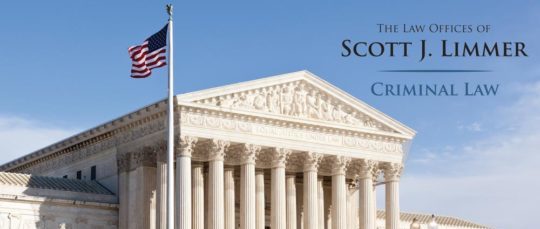On June 25, a political odd couple of House Judiciary Committee members Reps. Jim Sensenbrenner (R-WI) and Bobby Scott (D-VA) joined to co-sponsor a far-reaching bill to revamp the nation’s criminal justice system: the Safe, Accountable, Fair and Effective (SAFE) Justice Act (H.R. 2944). The bill’s 37 other co-sponsors to date, evenly divided between the two parties, include all six Democrats plus two Republicans besides the chairman on the House Judiciary subcommittee Sensenbrenner leads, and to which the bill has been referred.
The SAFE Justice Act grows out of a Congressional task force which had been studying how inflexible and outmoded features of the current justice system — particularly mandatory sentencing laws bringing stiff sentences for lower-level drug offenses — over-criminalize some offenses and cause crowded prisons. As backers of the new bill point out, over the past three decades, the U.S. prison population has grown fourfold, with a nearly six-fold cost increase, when inflation is taken into account.
The SAFE Justice Act aims to reverse the recent legislative trend towards ever-greater mandatory minimum sentences and offer greater support for programs to deter recidivism. It would reduce sentences and increase alternative disposition for low-level, non-violent crimes, especially federal drug offenses (which account for the largest share of federal incarcerations, while the largest portion of inmates in state jails are there for violent crimes).
The Sensenbrenner-Scott bill points to “smarter justice” reforms made in recent years by many states, which have generally been trimming both crime and incarceration rates, through such changes as diverting first-time non-violent offenders away from the criminal justice system.
The new bill would also: authorize federal courts to create alternatives, like the drug courts many states have set up, for lower-level offenses; encourage probation and other non-prison dispositions for first-time, non-violent offenders; limit mandatory maximum sentencing to major crimes; and for good conduct reduce jail terms for most offenses by up one-third, and the length of probation by up to half.
The bill also tries to slow the creation on new criminal offenses (backers claim 2,000 have been added to the federal criminal code since 1980); requires individualized rehabilitation plans for federal prisoners; and mandates fuller, quicker disclosure of police and prosecutor files to requesting defendants. Some of the expected savings from the bill (supporters estimate this at $200 million annually) would go to bolster local police forces.
A diverse group of backers are supporting the SAFE Justice Act, including both liberals (such as the NAACP) and conservatives (like the American Conservative Union’s Center for Criminal Justice Reform). Another unlikely pairing, the executive director of the American Civil Liberties Union and the general counsel of Koch Industries, known for its support of conservative causes, in a joint op-ed extolled the bill as “an important step” towards fixing the nation’s “ballooning, costly and ultimately unjust federal sentencing and corrections system,” which they say “needlessly throws away lives and decimates entire communities.”
President Obama in July staged a number of events to call attention to criminal justice issues, delivering a short videotaped message from the White House, speaking on the topic at the NAACP convention in Philadelphia, and visiting a federal prison in Oklahoma. The Administration has not yet advanced its own proposal, but the president has called for Congress to act.
Two House committees Judiciary and Energy and Commerce) will consider H.R. 2944, and House Speaker John Boehner has said he supports bringing the bill to a vote on the House floor. No counterpart bill has yet been introduced in the Senate, but key members of the upper chamber say they have been working on sentencing and corrections reforms and expect to offer a proposal soon.
